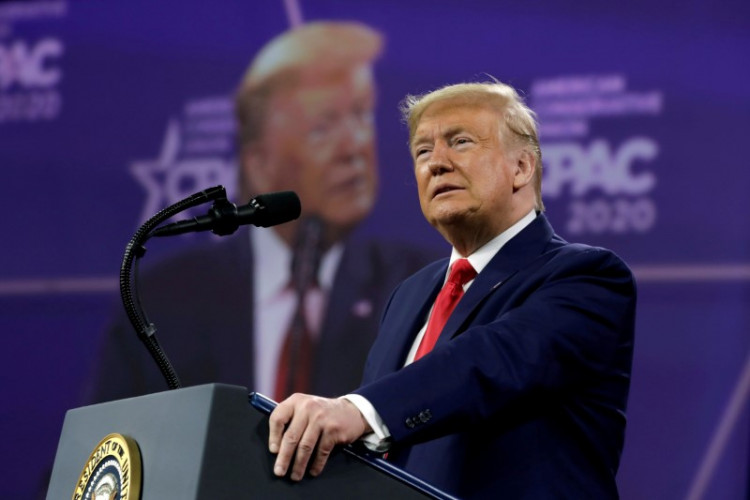In a dramatic turn in the ongoing U.S. presidential race, former President Donald Trump has accused Britain's Labour Party of interfering in the upcoming election, sparking a potential diplomatic row between Washington and London. Trump's campaign filed a formal complaint with the Federal Election Commission (FEC) on Tuesday, alleging that the Labour Party's actions violated U.S. election laws by encouraging its members to assist Vice President Kamala Harris' campaign in battleground states.
The complaint stems from a now-deleted LinkedIn post by Sofia Patel, Labour's head of operations, who mentioned that nearly 100 Labour Party staffers were traveling to the U.S. to volunteer for the Harris campaign. The Trump team contends that Patel's reference to "sorting housing" for volunteers suggests that the Labour Party is financially supporting their involvement, a potential breach of U.S. regulations prohibiting foreign nationals from contributing financially to U.S. election efforts.
"This is blatant foreign interference in an American election, and it needs to be addressed immediately," Trump's campaign lawyer, Gary Lawkowski, wrote in the complaint. He invoked historical tensions between the two nations, referencing the Battle of Yorktown to emphasize America's political independence from Britain. Trump himself echoed the accusations in a statement, accusing Labour of attempting to sway the election in favor of Harris.
Prime Minister Keir Starmer, leader of the Labour Party, dismissed the accusations, insisting that party volunteers are participating in their personal capacity, with no official support or funding from the party. "Labour party volunteers have gone over pretty much every election," Starmer told reporters during a trip to Samoa. "They're doing it in their spare time and at their own expense. There's no interference, just political solidarity," he added.
Labour's spokesperson reiterated Starmer's stance, explaining that the party's involvement is voluntary and a common practice in international politics. The statement clarified that volunteers are operating independently and adhering to U.S. laws. "Where Labour activists take part, they do so at their own expense, in accordance with the laws and rules," the spokesperson said.
The Trump campaign's complaint, however, zeroes in on the logistics and financial arrangements for these volunteers. U.S. election law allows foreign nationals to volunteer for campaigns as long as they are uncompensated and do not exceed certain expense thresholds. Any foreign national who spends more than $1,000 in travel, lodging, or campaign-related activities could be in violation of these laws. The Trump campaign alleges that Labour's housing arrangements for its volunteers cross this line.
Adding fuel to the fire, the controversy was first highlighted by billionaire Elon Musk, who is supporting Trump's campaign. Musk shared Patel's post on X (formerly Twitter), calling it illegal and amplifying the accusations of foreign interference. His comments were further supported by Nigel Farage, leader of the right-wing Reform UK party and a vocal Trump ally, who warned that such actions would be "particularly stupid if Trump wins."
Starmer sought to downplay any potential diplomatic fallout, stating that he had a "good relationship" with Trump, dating back to their meeting in New York when Trump was president. "As prime minister, I will work with whoever the American people return as their president," Starmer said.
The complaint filed by Trump's team could result in fines or other penalties from the FEC if the commission finds any wrongdoing. However, many political observers view the move as part of Trump's broader strategy to shift the narrative in his favor ahead of the Nov. 5 election. This isn't the first time allegations of foreign interference have surfaced in U.S. elections. In 2018, the FEC fined Australia's Labor Party $14,500 for paying the expenses of its delegates who volunteered for Bernie Sanders' campaign.
Despite the legal dispute, the controversy underscores the deep connections between political campaigns in the U.S. and their ideological counterparts overseas. Foreign political operatives have long participated in U.S. elections in informal capacities, exchanging strategies and offering support across borders. In 2015, Jim Messina and David Axelrod, both former aides to President Barack Obama, advised Britain's Conservative and Labour parties, respectively. Such exchanges are not new, but they are increasingly scrutinized in an era of heightened sensitivity around foreign influence in elections.






